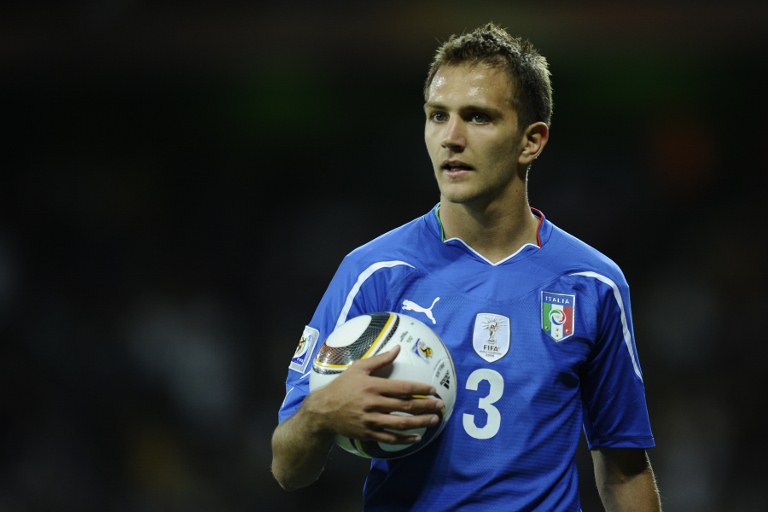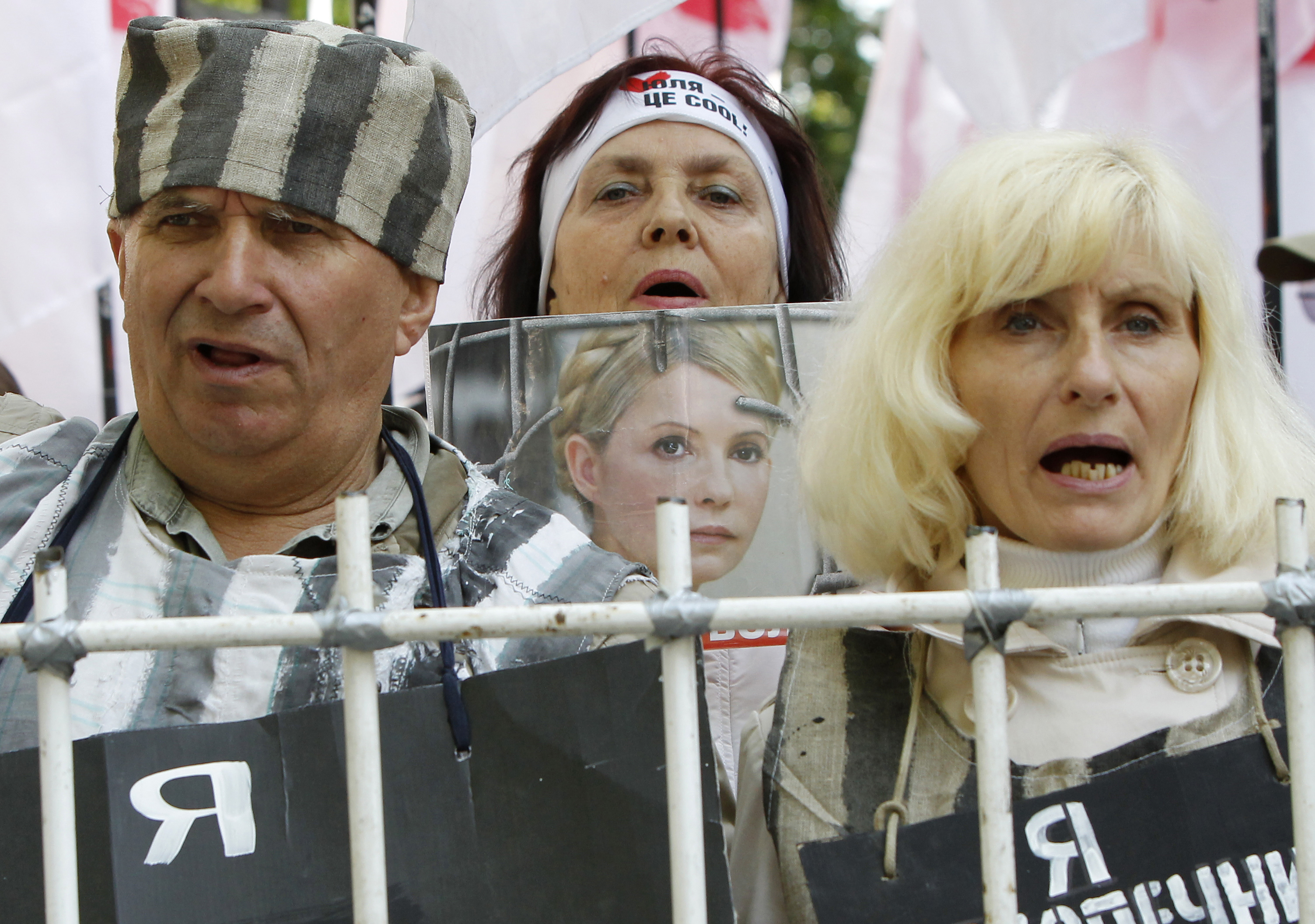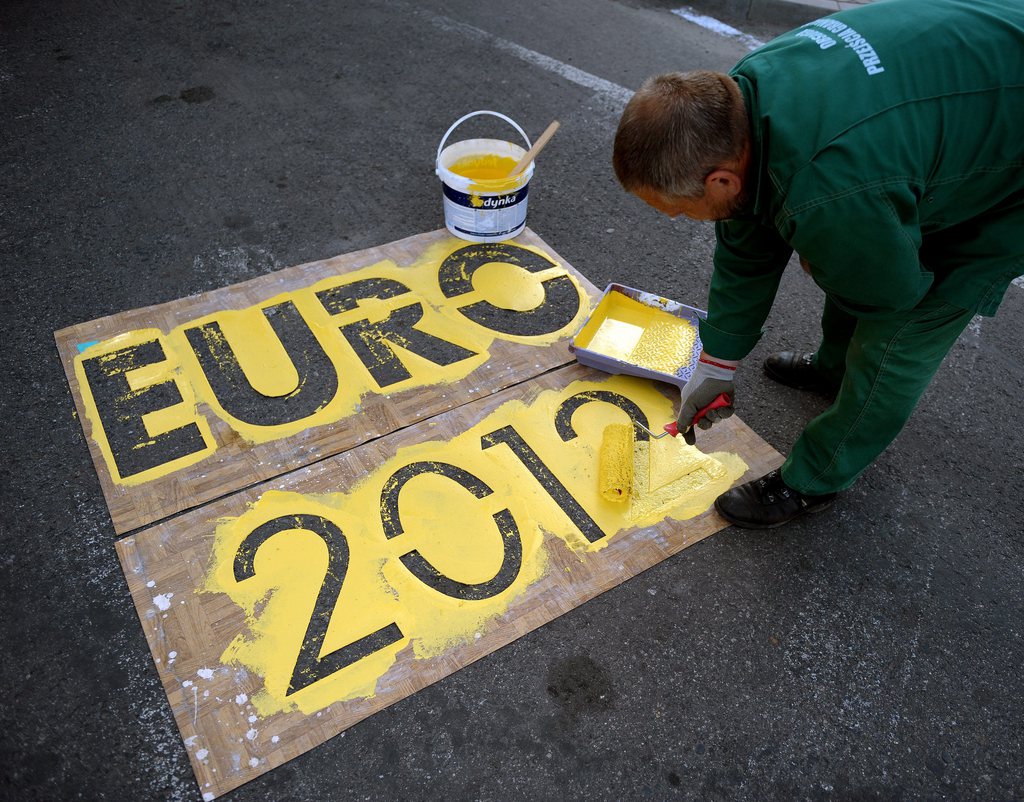All eyes on football as match-fixing rocks sport

What are the odds the 2012 European football championship, co-hosted by Poland and Ukraine, could be hit by an illegal betting or match-fixing scandal?
Officials from Uefa and other international sports federations meeting recently in the Swiss city of Neuchâtel said they were confident Euro 2012 would not be tainted. But some experts say they are “blind” to the realities.
Europe’s football body monitors millions of football bets placed with 300-400 legal operators via a so-called early-warning system to detect anomalies in betting patterns.
Every year some 31,000 matches are examined – 1,900 Uefa tournament games, and those in the first and second divisions of its 53 national associations. Over the past two years it has spotted some 250 matches with irregular betting movements. Euro 2012’s 31 games will be closely scrutinised.
“Of course we are watching what’s going on very attentively. But Euro 2012 is not a competition with a high risk for match-fixing, as it will be watched by some 200 million people – that is 200 million referees,” Pierre Cornu, Uefa’s chef legal counsel for integrity and regulatory affairs told the audience at the roundtable talks on match-fixing.
“Match-fixing is a serious problem, but 99.99 per cent of all matches you watch are clean. The 0.01 per cent is certainly disturbing but we shouldn’t get too obsessed.”
Interpol estimates $300-500 billion (SFr289-483 billion) is gambled a year on sport. The proliferation of technological change allowing bets to be offered on all manner of sporting events across the globe via the internet and mobile phones, and the growth of illegal markets, mainly in Asia, has intensified the threat of match-rigging.
Despite Cornu’s public optimism, Uefa remains worried; its president Michel Platini recently warned that match-fixing was “killing the game”.
Denis Oswald, a member of the executive board of the International Olympic Committee (IOC) and a specialist on match-fixing, agreed with Cornu: “With so many people watching I don’t think it’s likely something will happen. If I wanted to manipulate a match, it wouldn’t be at Euro 2012.”
Potential risk
But Hervé Martin Delpierre, director of the documentary film Sport, Mafia et Corruption, who spent 18-months investigating match-fixing, felt there was a “real potential risk” that Euro 2012 may be targeted.
He said Cornu was “overly optimistic” as the early warning system only scanned legal sites.
“Unfortunately they are blind to 80-90 per cent of the bets that are placed worldwide, in particular in Asia,” Delpierre told swissinfo.ch.
Gamblers’ and fixers’ options have exploded. There are an estimated 15,000 online gambling sites and you can now place up to 300 different kinds of bets during a match up to five minutes before the end on everything from the number of corners during the first half to the first goal scorer.
And the idea that match-fixers are only targeting small matches is false, added the filmmaker.
“If you talk to the people from Early Warning System GmbH or Sportradar, which oversee most bets in Europe, they will tell you that Uefa Champions League and World Cup qualifiers are also at risk and there are strong suspicions,” he noted.
And previous Euro tournaments are not free of suspicion. Uefa are currently investigating allegations that the Euro 2008 qualifier between Norway and Malta was rigged.
Unpaid wages and corruption
Investigative journalist Declan Hill, who has written extensively on match-fixing, was more cautious, however. He said match-brokers would probably be present in Ukraine and Poland but he doubted they would be successful.
“There are only 16 teams in this tournament, nine of whom have a good chance of winning and there are dark horses. But more importantly, most of those football associations involved pay the players,” he told swissinfo.ch.
“It’s ‘the’ issue which the IOC and Fifa keep ducking. Many of their national associations rip off players so some teams at the World Cup, for example, don’t get paid and that opens the door to fixers.”
In February FIFPro, the global union for professional players, published a survey of 3,400 players in mainly eastern Europe that showed that 12 per cent had been approached to consider match-fixing and 23.6 per cent were aware of match-fixing in their league. It concluded there was a clear link between unpaid or late wages and corruption.
Asian match-fixers
Hill said 60 national match-fixing investigations were underway linked to a gang of 20-30 Asian match-fixers from Singapore, Malaysia, Indonesia and Thailand, who travel the globe and form alliances with criminal groups in places like Germany, Finland and Italy. One thousand sports officials and players have been arrested and 100 people charged, he added.
In Italy 50 suspects have been arrested over the past year in a widening match-fixing scandal led by prosecutors in Cremona that involves 22 clubs and 33 matches. Many more people have been placed under investigation.
Italian Prime Minister Mario Monti last week suggested Italian football should be suspended for two to three years. Italy coach Cesare Prandelli said it wouldn’t bother him if his team withdraws from this year’s tournament.
International sports bodies say they have a zero-tolerance approach to corruption in sport and have introduced a raft of measures like whistleblower hotlines, preventive programmes and networks of “Integrity Officers”.
But without more government support and a harmonised legal framework, they will find it difficult to slow the growing phenomenon.
“For the moment match-fixing is not a priority for governments. It’s really a long-term struggle that is much tougher than the fight against doping given the scale of the problem, the sums involved and the complexity of the investigations,” IOC director general Christophe De Kepper told the Neuchâtel round table.
Poland and Ukraine have denounced British press allegations of racism and hooligan violence at football stadiums and assured foreign footballers and fans that they would be safe during Euro 2012.
The co-hosts played down a BBC Panorama investigative programme on football violence filmed in their countries. It contained footage of fans giving Nazi salutes, taunting black players with monkey noises, anti-Semitic chants and a group of Asian students being attacked in Kharkiv, one of the four Ukrainian cities which will be hosting matches.
Former England international Sol Campbell warned England fans not to travel to Euro 2012 because of the threat of racism and violence. His comments follow the families of two black England players who said they would not go to the championship. The British Foreign Office said travellers of Asian or Afro-Caribbean descent or individuals belonging to religious minorities should take “extra care” if travelling to Ukraine.
The allegations have added to other bad publicity ahead of Euro 2012. The jailing of Ukrainian opposition leader Yulia Tymoshenko has triggered charges of backsliding on democracy from the EU, some of whose politicians are threatening to boycott Euro 2012.
Reports of high-level corruption, excessive hotel prices, violence against participants of a Gay pride meeting, a surge in prostitution, and graphic images of a brawl among law-makers in parliament over a language law have further damaged Ukraine’s international image.
Switzerland has also been linked to recent scandals. Five Swiss footballers were fined and given suspended sentences in March 2012 for their involvement in a 2009 scandal involving a Croatian-German gang and dozens of rigged games in Germany, Austria, Switzerland and other European nations.
The Tages-Anzeiger newspaper last week reported that Swiss football authorities suspect four second-tier league matches may be linked to the ongoing Italian probe.
And according to Delpierre, one of the financial networks for the Italian operation is based in Switzerland and collaborates with the Italian mafia to fix matches.
The Federal Police Office has sent delegates from its hooligan service to Poland to share information with Euro officials and police. Switzerland co-hosted Euro 2008 with Austria and sent spotters to the 2010 World Cup in South Africaa.

In compliance with the JTI standards
More: SWI swissinfo.ch certified by the Journalism Trust Initiative



You can find an overview of ongoing debates with our journalists here. Please join us!
If you want to start a conversation about a topic raised in this article or want to report factual errors, email us at english@swissinfo.ch.